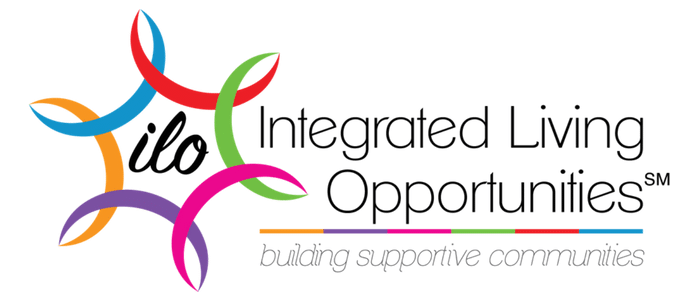Friday, September 1, 2017
Integrated Living Opportunities is a 501c3 certified non-profit organization. We are dedicated to creating supported, integrated and inclusive communities in which adults with disabilities (self-advocates) can live independently, yet supported.
In late July (July 25, 2017) the Montgomery County’s Office of Legislative Oversight (OLO) released a report relevant to the work that ILO does building communities in Maryland and the Washington, D.C. metropolitan area. The comprehensive report, titled Housing for Adults with Developmental Disabilities, focused on examining the living arrangements of adults with intellectual and/or developmental disabilities (I/DD) in Montgomery County, MD.
Housing for Adults with Developmental Disabilities
Housing for Adults with Developmental Disabilities (written by Sue Richards with help from colleagues) is a detailed analysis of community living and housing options for adults with disabilities in Montgomery County, MD. Commissioned by the Montgomery County Council, the study aims to provide increased “understanding of the housing challenges that face adults with DD and the families that support them.”
The report was prompted by results of the 1999 Olmstead v LC, a federal court case which decided that individuals with disabilities living in state run institutions and nursing facilities should be living in the community. In other words, deinstitutionalized. The Office of Legislative Oversight was asked to “describe the living arrangements for adults with developmental disabilities; to survey programs in other places; to describe housing programs that currently exist to meet these needs, and to offer suggestions about approaches that may be relevant for Montgomery County.”
The study breaks down its report into seven chapters:
- Background,
- Family Models
- Community Housing Models,
- State and Local Housing Programs,
- Housing in Maryland’s Development Disability Service System,
- Findings and Recommended Discussion Issues, and
- Agency Comments.
Throughout the course of these seven chapters, the author(s) create context for the issue, by examining the definitions of disability, examining disability laws, providing stats on the disability population, etc. The report provides examples and descriptions of community housing models, state and local housing programs, and “residential services and housing options in the state’s service system for adults with I/DD”. The authors also recommend next steps and present comments from County agencies that contributed to the report. They provide a set of useful discussion questions on which future government disability housing policy should be based.
Here at ILO, we strongly recommend that this report be read in full by anyone who has a family member with a disability, whether they are looking for independent living, currently living independently, or planning to live independently in the future. It is incredibly comprehensive and can provide understanding of the challenges faced by families that are looking for independent living, as well as policy makers, organizations and service providers that work to create independent living opportunities. A link to the full report can be accessed here.
It should be noted that as a Montgomery County non-profit that provides independent living support for individuals with disabilities, ILO was asked to contribute to this report. Special thanks go out to Maedi Tanham Carney, ILO Founder, President and CEO, and to Reda Sheinberg, an ILO family member, for their time and contributions.
Would you like more information?
Thank you for taking the time to visit our website and read our blog today. Again, we strongly urge you to take the time to read Housing for Adults with Developmental Disabilities in full – as parents, as peers, and as advocates it is vital that we stay informed as to government policy and the way that government policy shapes the lives of individuals with disabilities in our communities. The data in this report is essential in helping organizations such as ILO decide how to proceed, what to advocate for, and how to work to ensure that best possible lives for individuals with disabilities.
If you have any questions, or would like to learn more about ILO and the work we do building supported communities please contact us. We would love to hear from you. Take a moment to subscribe to our blog – we post bi-weekly on relevant topics to the disability community, events and workshops hosted by ILO, and updates on the progress that ILO is making building supported communities in the Washington, D.C. metropolitan area.
